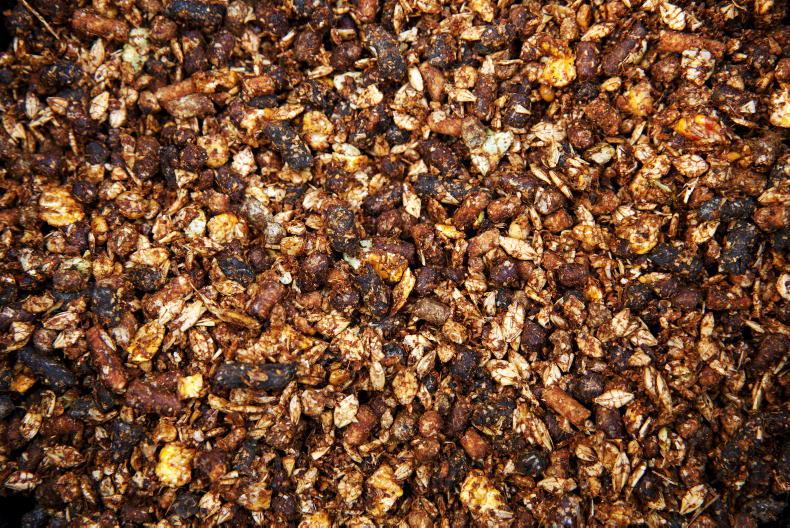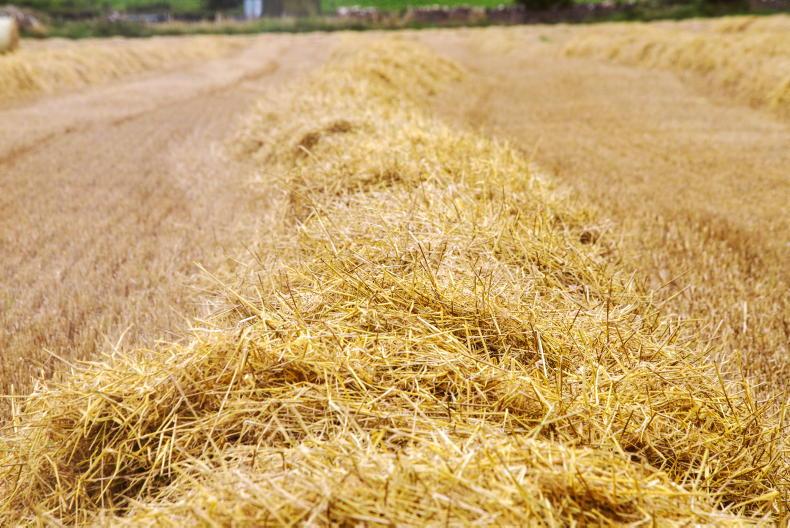The impact of Brexit on Irish agriculture at this point is well understood, potentially costing up to €1.5bn annually.
That is because tariffs on exports of agricultural produce are particularly high and some of our agricultural exports, particularly beef, cheddar, pigmeat and poultry meat, are heavily dependent on the British market.
Less attention has been given to the potential cost of Brexit on imports of goods to Ireland from Britain. Anything travelling south from Northern Ireland and vice versa is excluded, assuming the withdrawal agreement comes into operation after 1 January.
Irish imports greater than exports to the UK
Despite the dependence on Britain for Irish exports of agricultural produce, in overall trade, Ireland buys more from Britain than it sells.
According to a House of Commons library briefing paper, in 2019, overall Irish imports from the UK were £38.3bn (€42bn), while exports were £24.4bn (€26.7bn), meaning a trade surplus of £13.8bn (€15.3bn) in the UK’s favour.
This makes Ireland the UK’s fifth-largest export market and ninth-largest source of imports and the UK has had a positive trade balance with Ireland for each of the last 20 years back to 1999.
Within this overall picture of UK trade with the Republic of Ireland, Northern Ireland has the largest share of exports, accounting for 14.6% of all UK exports, while Northern Ireland also accounts for the largest share of imports at 16.7%.
Livestock and agricultural produce are the main items traded across the border on the island of Ireland. These would be excluded from tariff liabilities, according to the withdrawal agreement protocol.
Consumer goods imported
The biggest UK sales to Ireland are petrol and oils, motor vehicles, medical and pharmaceutical products, machines, electrical equipment, clothes, toiletries and cereals and cereal preparations.
These make up the everyday products that are used by Irish consumers, and while none would carry the extortionate tariffs that agricultural produce does, they are liable to tariffs that would make them more expensive.
Deal won’t eliminate costs
Tariffs, of course, may still be avoided if there is a deal agreed between the EU and UK on trade after 1 January.
However, at this point, it seems unlikely that this will be a very basic no-tariffs, no-quota deal, but there will be the inevitable administration costs around customs documentation and health certification for animal-based products.
This is a cost that will have to be incurred irrespective of tariffs and will have the effect of making many goods more expensive for Irish consumers.
There is also increased threat to supply as checks at ports of export and import could delay supplies.
No winners
This administrative cost is likely to be much lower in exports to the UK because Irish exports are usually primary products for further processing or retail distribution in the UK.
That means that consignments are likely to be complete loads of the same product that can be covered by a single health certificate.
All of this means that it will not just be Irish farmers that will take the hit from Brexit, it will apply to Irish consumers and Irish industry, given our dependence on the UK for supplies of consumer goods, clothes and general household equipment.
Virtually all Irish households have exposure to the need for motor vehicles and fuel to operate them. There are no Irish winners in Brexit in whatever form it takes after 1 January.
Read more
NI food industry fed up with Stormont inaction
Why tariffs are such a big deal if there is no deal
UK government publish guidance for the development of GMOs post-Brexit
The impact of Brexit on Irish agriculture at this point is well understood, potentially costing up to €1.5bn annually.
That is because tariffs on exports of agricultural produce are particularly high and some of our agricultural exports, particularly beef, cheddar, pigmeat and poultry meat, are heavily dependent on the British market.
Less attention has been given to the potential cost of Brexit on imports of goods to Ireland from Britain. Anything travelling south from Northern Ireland and vice versa is excluded, assuming the withdrawal agreement comes into operation after 1 January.
Irish imports greater than exports to the UK
Despite the dependence on Britain for Irish exports of agricultural produce, in overall trade, Ireland buys more from Britain than it sells.
According to a House of Commons library briefing paper, in 2019, overall Irish imports from the UK were £38.3bn (€42bn), while exports were £24.4bn (€26.7bn), meaning a trade surplus of £13.8bn (€15.3bn) in the UK’s favour.
This makes Ireland the UK’s fifth-largest export market and ninth-largest source of imports and the UK has had a positive trade balance with Ireland for each of the last 20 years back to 1999.
Within this overall picture of UK trade with the Republic of Ireland, Northern Ireland has the largest share of exports, accounting for 14.6% of all UK exports, while Northern Ireland also accounts for the largest share of imports at 16.7%.
Livestock and agricultural produce are the main items traded across the border on the island of Ireland. These would be excluded from tariff liabilities, according to the withdrawal agreement protocol.
Consumer goods imported
The biggest UK sales to Ireland are petrol and oils, motor vehicles, medical and pharmaceutical products, machines, electrical equipment, clothes, toiletries and cereals and cereal preparations.
These make up the everyday products that are used by Irish consumers, and while none would carry the extortionate tariffs that agricultural produce does, they are liable to tariffs that would make them more expensive.
Deal won’t eliminate costs
Tariffs, of course, may still be avoided if there is a deal agreed between the EU and UK on trade after 1 January.
However, at this point, it seems unlikely that this will be a very basic no-tariffs, no-quota deal, but there will be the inevitable administration costs around customs documentation and health certification for animal-based products.
This is a cost that will have to be incurred irrespective of tariffs and will have the effect of making many goods more expensive for Irish consumers.
There is also increased threat to supply as checks at ports of export and import could delay supplies.
No winners
This administrative cost is likely to be much lower in exports to the UK because Irish exports are usually primary products for further processing or retail distribution in the UK.
That means that consignments are likely to be complete loads of the same product that can be covered by a single health certificate.
All of this means that it will not just be Irish farmers that will take the hit from Brexit, it will apply to Irish consumers and Irish industry, given our dependence on the UK for supplies of consumer goods, clothes and general household equipment.
Virtually all Irish households have exposure to the need for motor vehicles and fuel to operate them. There are no Irish winners in Brexit in whatever form it takes after 1 January.
Read more
NI food industry fed up with Stormont inaction
Why tariffs are such a big deal if there is no deal
UK government publish guidance for the development of GMOs post-Brexit









SHARING OPTIONS